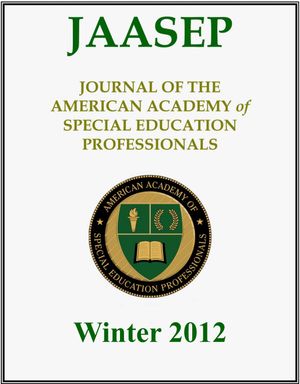$5.95
From the Golden Rule to Platinum Rule: Strategies Advancing Cultural Proficiency for Sped Educators
Abstract
Special educators must make cultural proficiency a lifelong journey of personal awareness, cultivation of empathy, and behavioral adjustments to create inclusive environments for students with disabilities who also come from or identify with culturally diverse backgrounds. We discuss strategies for increasing cultural proficiency at the micro (individual), mezzo (group), and macro (whole schools) levels of practice. The commitment to have culturally proficient schools is an excellent indication that minority students will thrive academically (Peo, 2015). This does not require becoming an expert on all ethnicities and cultures; however, it does require learning simple strategies, such as a shift from a fixed to a growth mindset, and the subsequent transition from the Golden Rule to the Platinum Rule. This leads to promotion of the positive practices of inclusion, equity, and effective management of prejudices.
Keywords: Cultural Proficiency, Inclusion, Intersectionality, Critical Race Theory, Special Educators, School Personnel



